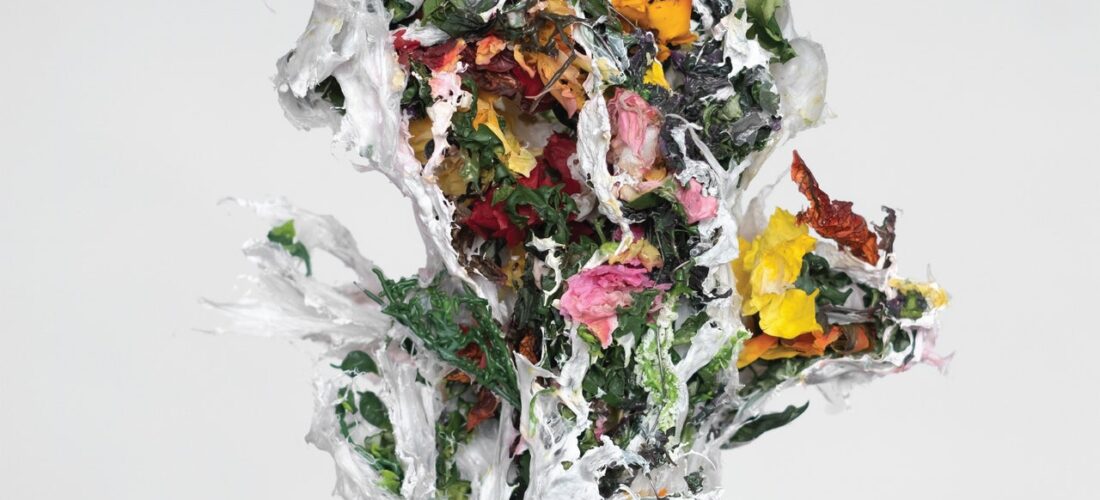Over the past decade, Montreal trio BIG|BRAVE have released albums through both Southern Lord and Thrill Jockey, a track record that speaks to their fluency in both bone-shaking doom metal and post-rock experimentation. But their first language was folk music. In the years leading up to their tremorous 2014 debut, Feral Verdure, BIG|BRAVE founders Robin Wattie and Mathieu Ball performed early gigs as an acoustic-oriented duo. Even as they transitioned to electric instrumentation and loaded up on percussive firepower to become one of the most punishing and prolific bands in the contemporary avant-metal landscape, BIG|BRAVE’s emotional core has remained largely intact—in their hands, noise is simply a megaphone to amplify the unrest embedded in their songs from day one.
But while their official discography has turned both more expansive and abrasive—culminating in the throat-shredding epics of 2023’s Nature Morte— BIG|BRAVE also took a detour back to their folk-song roots with 2021’s Leaving None But Small Birds, a rustic retreat with Rhode Island metal mutants the Body that was ultimately less Earth than earthy, complete with revamps of dustbowl standards like “Black Is the Color of My True Love’s Hair” and “Once I Had a Sweetheart.” You could say that A Chaos of Flowers is another collaborative archival project that reanimates ancient texts. In this case, the key contributors are summoned from the grave.
The majority of tracks on A Chaos of Flowers take their lyrics or inspiration from poets spanning countries, cultures, and eras—from American icon Emily Dickinson to British-Parisian lesbian raconteur Renne Vivien to Japanese proto-feminist Yosano Akiko to Mohawk poet E. Pauline Johnson aka Tekahionwake. (A true tortured poets’ department, as it were.) But they find their point of intersection in Wattie’s identity as a queer woman of mixed heritage living in a bilingual city. If Leaving None But Small Birds journeyed through the past to reconnect with storytelling tradition, then A Chaos of Flowers is more about recontextualizing old wisdom as premonitions of our current condition.
As such, the album sounds less like a loud rock band mellowing out than a loud rock band sculpting their squall with all the craft and care of folk music. This isn’t so much doom metal as doomed metal—like 1,000-foot-high sand castles, these songs feel majestic yet ephemeral, as if they could dissolve into the ocean at any moment. In the past, the band might’ve used the sinister riff of “Not Speaking of the Ways” as the foundation for a monstrous march—and the presence of guest guitarist Tashi Dorji and saxophonist Patrick Shiroishi certainly intensifies its nauseous grandeur. But drummer Tasy Hudson lays off the kick pedal and floor tom to tap out a tentative rhythm on her cymbals, allowing the song to float instead of crush. It’s a treatment that perfectly mirrors Akiko’s source verse, a freeze-frame portrait of a love so strong, it has the power to stop time and provide momentary sanctuary.
